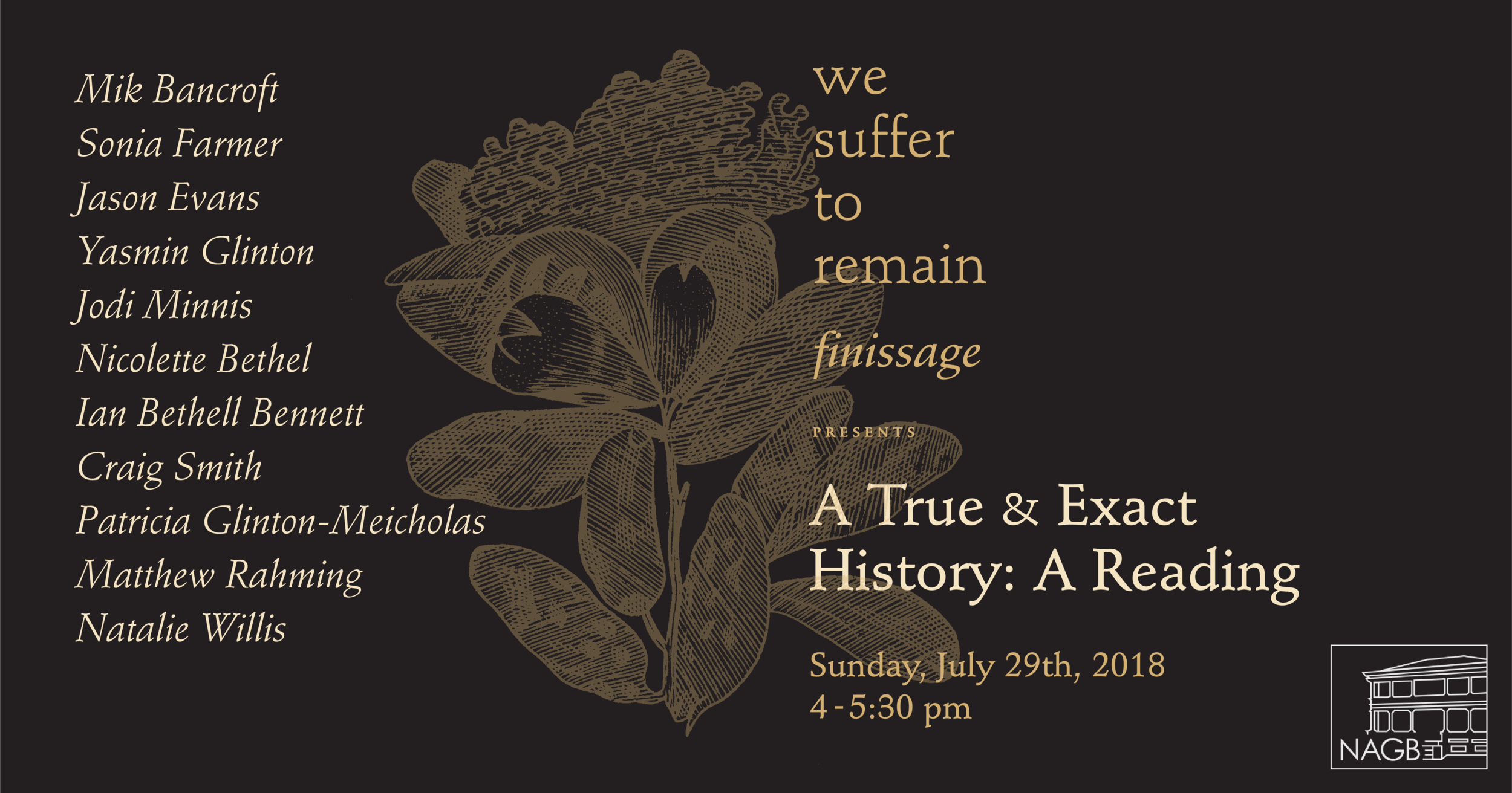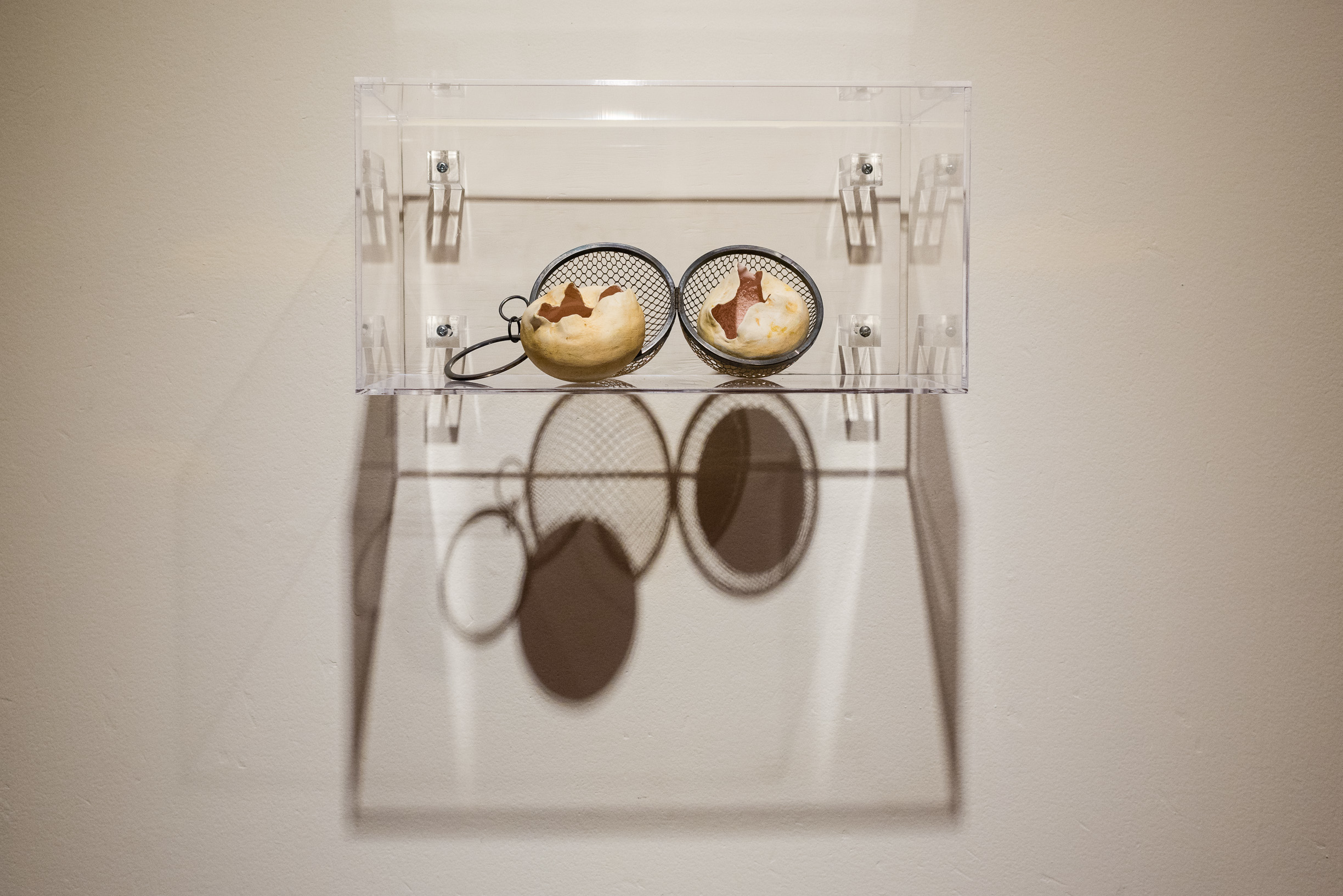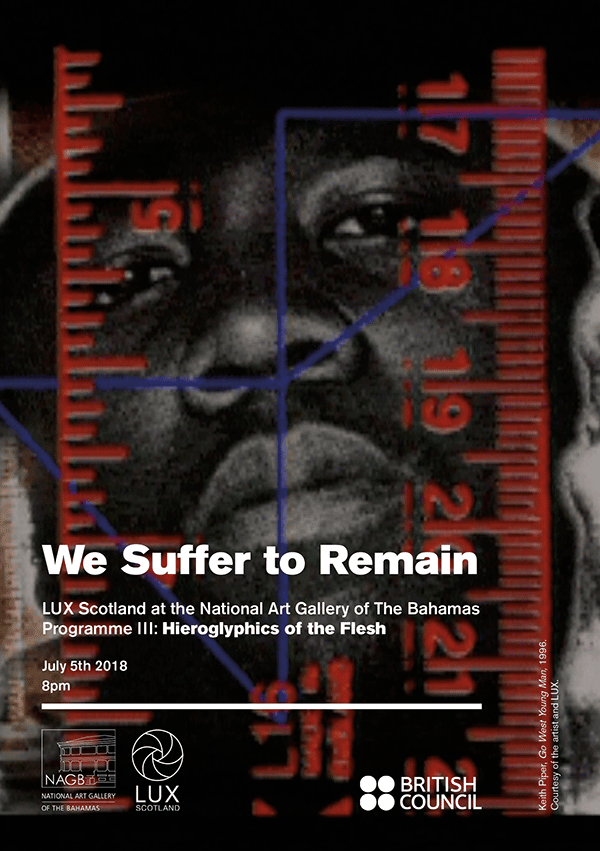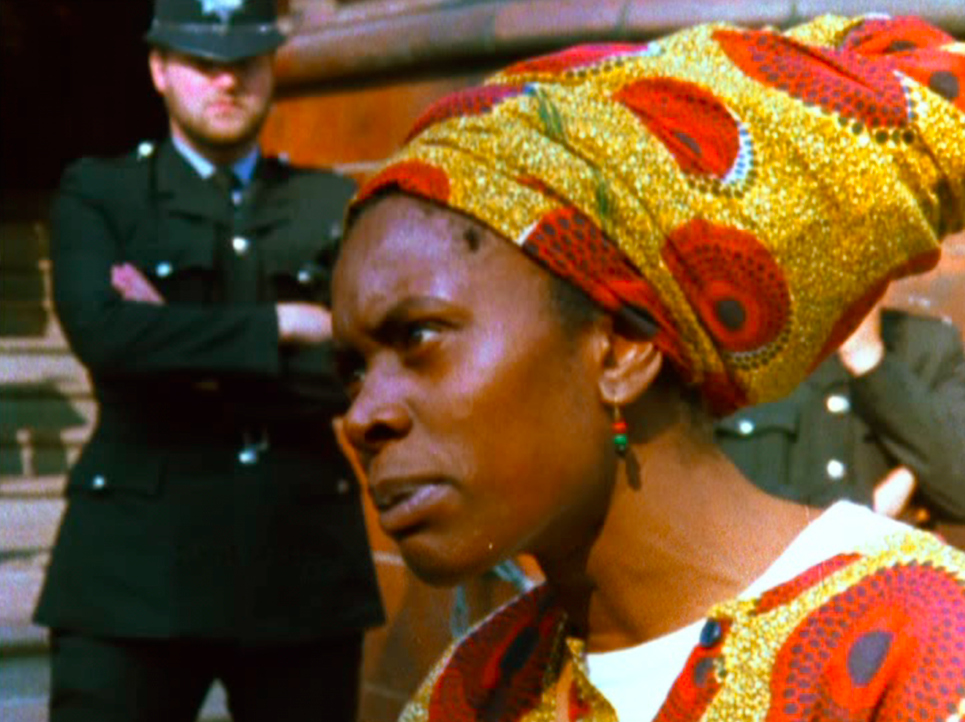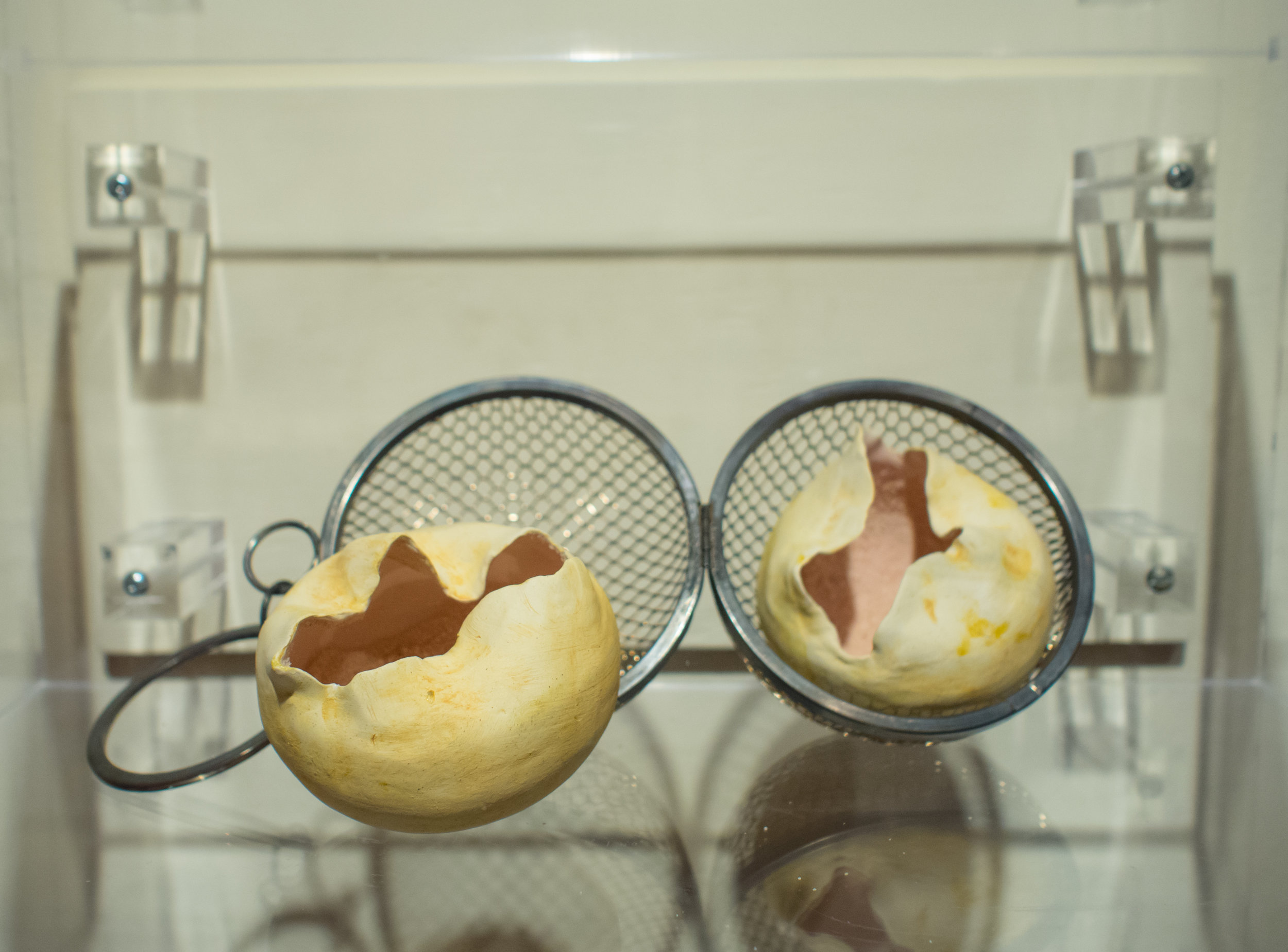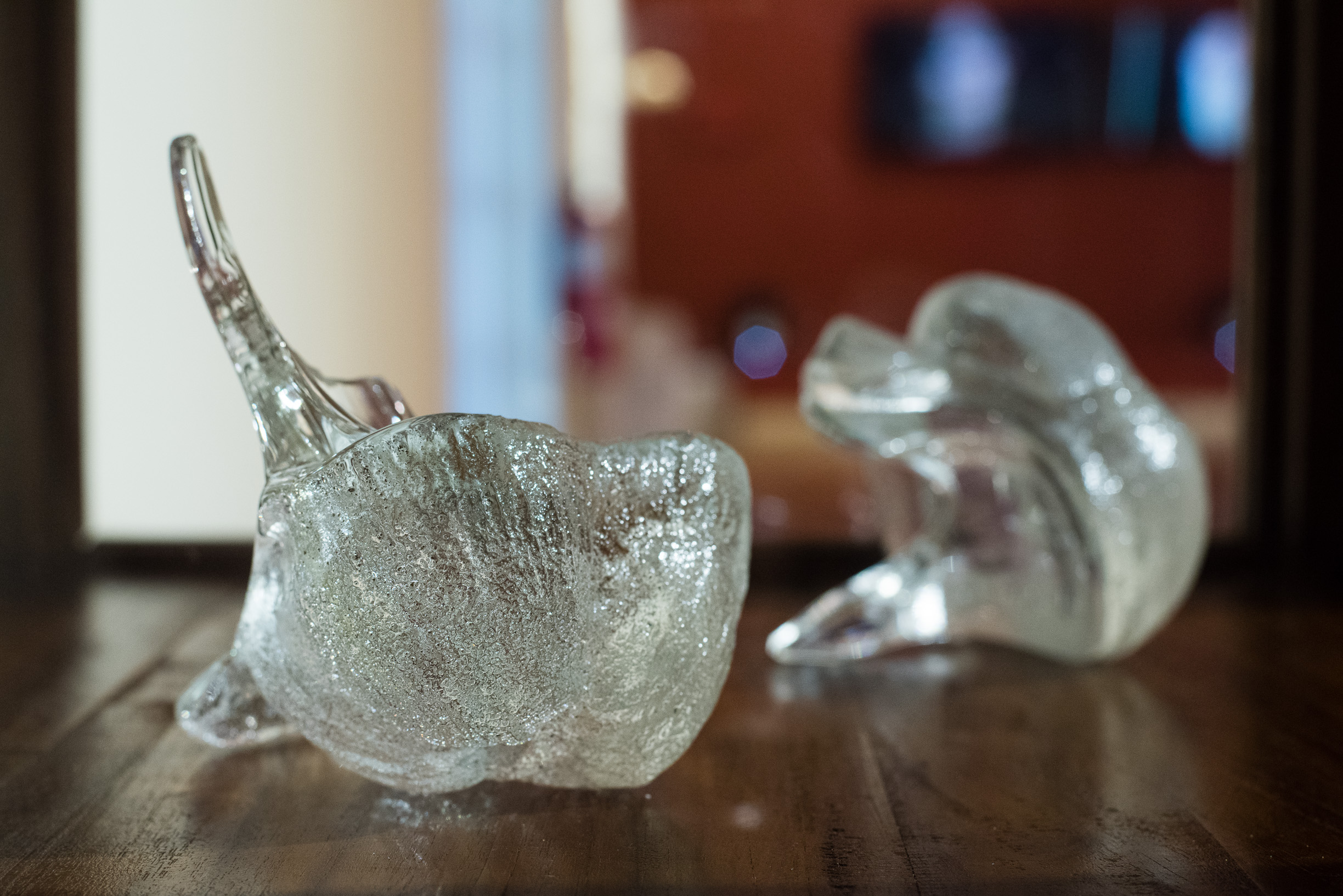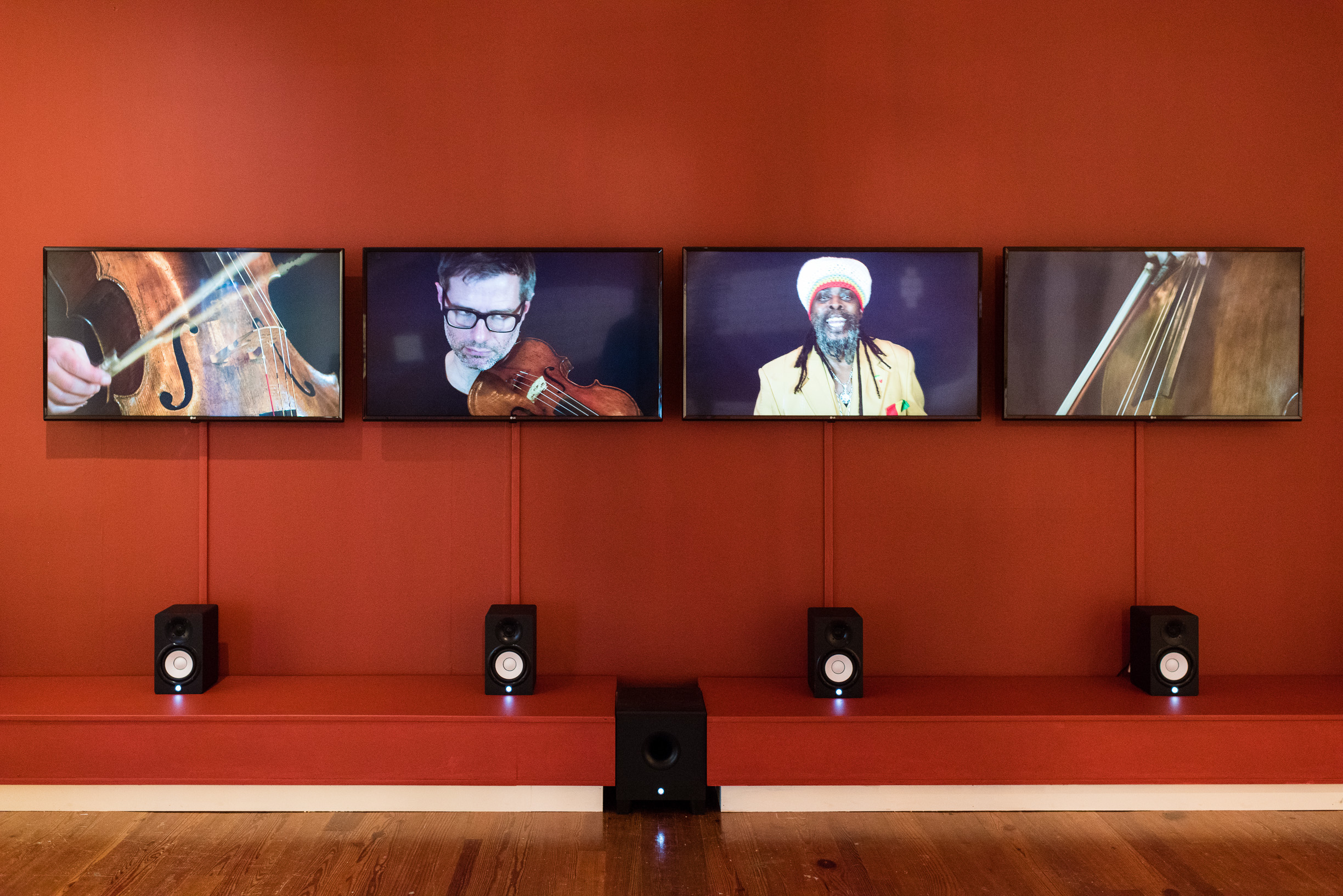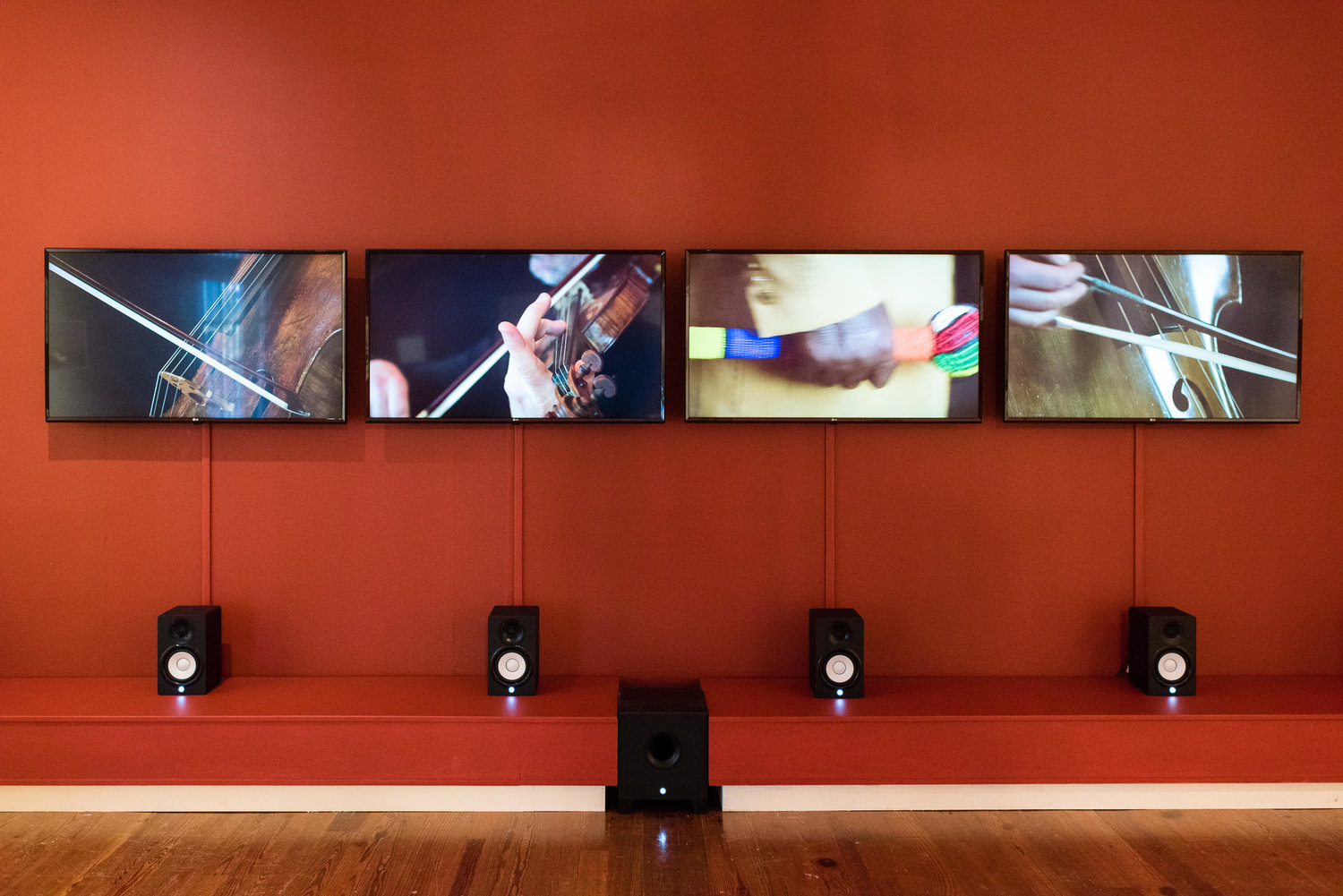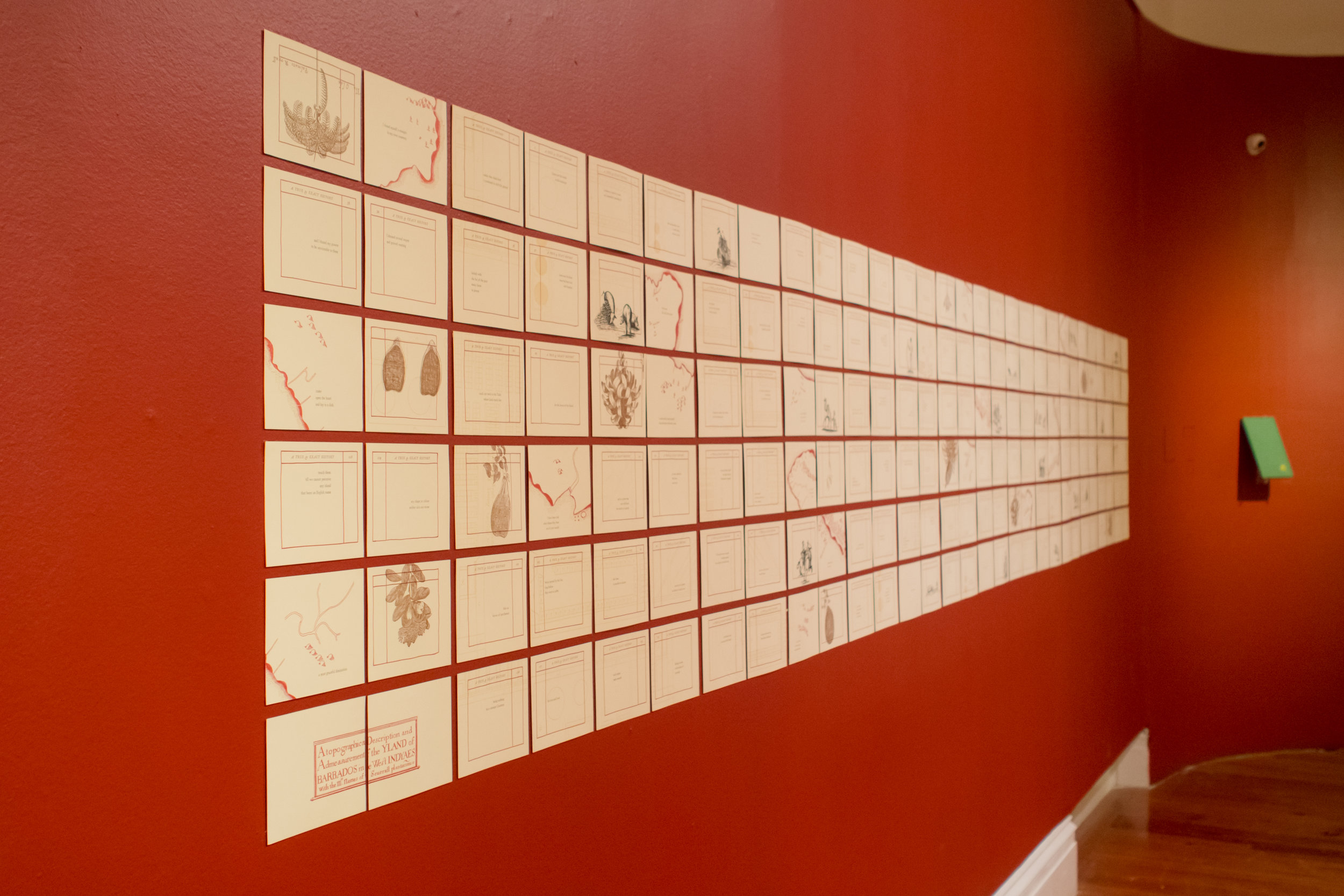For the closing event and finissage of the exhibition “We Suffer To Remain” -Sunday, July 29th–we are left to critically, crucially, question the work of language. “I suffer to remain, Saint of a wild mad Land”. The Caribbean has transitioned from this “wild, mad land” of disease and mystery into the tropical Eden we ubiquitously see in media today. But just what makes this place what it is? Who suffers to remain, and who are the saints and sinners? Sometimes it is easy to get lost in the cacophony of voices in the history of this region. In a place suffering from the silencing of so many, it is harder still to discern what voices are speaking – be they loud, soft, deafening, or a whisper.
All posts tagged: We Suffer To Remain
A Body Of My Own: Anina Major reclaims the body
Africa, Agency, and Atom Spirits: Does the body remember the journey across the Atlantic?
Tall Order: An interview with Nicole Yip of LUX Scotland on meaningful exchange and working to decolonize the archive
The NAGB, in collaboration with LUX Scotland, has put together some really incredible content for our series of film screenings as part of the programming for our current exhibition in partnership with the British Council, “We Suffer To Remain”. Moving image has impacted us so greatly as a region in terms of shaping our narratives, and in how we decolonise and re-shape those narratives for ourselves. The first programme in the series of screenings, titled “One Turn of the Revolution”, featured artwork by the lauded Black Audio Film Collective and Barbadian-born, Glasgow-based Alberta Whittle, dealing with issues around migration and the post-colonial in Britain and in former colonies. Programme II, “Poetics of the Undercommons” will be on view at the NAGB on June 14th.
Troubling Narratives: This is how we suffer to remain
“We Suffer to Remain” is a collaborative exhibition whose seed was sprouted in November 2015, when I was invited to be a part of a curatorial cohort that visited Glasgow and Edinburgh, Scotland, as a part of the British Council expanding and investing in the emerging and burgeoning visual art ecology in the Caribbean. This meeting set an idea in motion about how institutions in the Caribbean can start thinking in new ways about partnerships and collaborations that, 20 years ago, might not have been possible. The Caribbean as a creative space continues to flourish in its liminality, continues to grow and inspire globally as a cornerstone of excellence but, unfortunately, also continues to be a perpetual site of extraction, exhaustion and removal. Perhaps one needs to be alone with these words to understand the gravitas and the generational weight of our inheritance.
My Mouth is a Heartbreak: Anina Major’s “Wisdom Teeth” (2017)
By Natalie Willis. Anina Major’s “Wisdom Teeth” (2017) are beautiful, haunting ghosts of an imagined body – this body could be mine, yours, our ancestors, an imagined overarching representation of the body of the Caribbean personified. Teeth are universal (for most of us at least), but they are also still body parts that have distinct history and stories for many of us. As a nation built on slavery, on the backs of Blacks, with a majority-Black population despite the diversity of races and nations that build into the potcake of this peculiar place – sometimes the Black racialising of experiences is too much to move past. Funny how that happens, in places still dealing with the toxic, poisonous vestiges of slavery with racism at the bedrock of our foundations. All this to say, when we look at teeth, we can’t not look at teeth in relation to Black people.
Over 800 Million Souls: An interview with Graham Fagen (Pt II) on his work in “We Suffer To Remain”
By Natalie Willis. We continue where we left off with Graham Fagen last week on discussing his work, “The Slave’s Lament” (2015) in the collaborative exhibition, “We Suffer To Remain”.
NW: Where you do situate your voice in the work and in the overall exhibition? In “The Slave’s Lament” do you see yourself in the work, or more as a facilitator?
GF: You as the artist, in collaborating with people, start with an aim as to what you think you could achieve, or what you hope you could achieve. When you start the process it needs to allow space and room for other people to offer what they want to bring to the project. I suppose I was directing their influence and then having them step back, and then I would take that influence on to each stage. When I see the work, for me it’s Ghetto Priest’s, the Scottish ensemble’s, it’s lots of other people’s work. And that’s good, I like that as an artist, when what you make belongs to others.
Other Tongues: An interview with Graham Fagen (Pt I) on Scottish cultural amnesia and gazing into the mouth of silenced histories.
By Natalie Willis
The last in our series of two-part interviews with the artists of “We Suffer To Remain”, this week we speak to Scottish artist Graham Fagen on having his work not only as the starting point of this series of exhibitions on “Difficult Conversations”, but also on having his work brought to the Caribbean context to which it refers. “The Slave’s Lament” (2015) is a moment for us to consider the realities of this Trans-Atlantic history in contemporary contexts, and now that we’ve seen Bahamian responses with our national artists responding to this work, we take a moment to consider Fagen’s perspectives in our space.
Locked in Our Bodies: A Resurrection of Voices
By Dr Ian Bethell-Bennett, The University of The Bahamas. We are locked in bodies that demonstrate a temporal fixity that is only such. This became more apparent to me on my first experience in Salvador de Bahia, where the material remnants of slavery and colonialism remained intact and on view, unlike in New Providence where most of the remains of slavery are either dematerialised, vanished and decontextualised. As “We Suffer to Remain” evidences, the coloniality of the postcolonial condition becomes even more poignant when expressed through a clash/confluence of arts. Art allows space for a dialogue that exposes the pasts and versions usually edited out by the passage of time, and the power of the state to redirect what was once empowerment discourses.
Beadle, the Mechanic: An Interview with John Beadle on his work for “We Suffer To Remain”, part II
By Natalie Willis. Last week we heard John Beadle speak to his participation in “We Suffer To Remain”, an exhibition in collaboration with the British Council. The works produced in “We Suffer To Remain”–the Bahamian leg of a 4-part journey of the British Council’s “Difficult Conversations” series of exhibitions– serve as Caribbean response to Scottish artist Graham Fagen’s work, “The Slave’s Lament”. Shown at the Venice Biennale in 2015 as a representation for Scotland in the global art biennial, and choosing to uncover the country’s complicit nature in the Slave trade and the general amnesia surrounding Britain with their role and repercussions in chattel slavery – there is more to this work than meets the eye. Here is a not-so-difficult conversation with Beadle.
